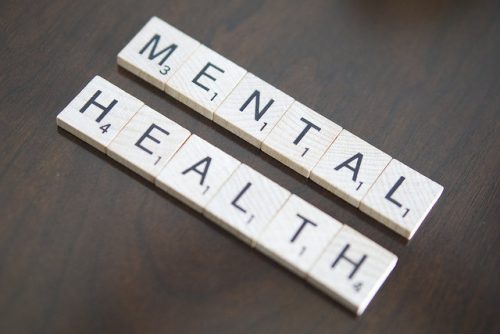The stresses of our daily cycle affect our sanity. Imagine the toll a continuous daily routine takes on someone with mental disorders! It can be tricky as mental health problems or crises make you feel lost between reality and dreams.
Mental Health Facts, Statistics, And Other Information

“Your ability to remember things and organize your thoughts is often hampered. you have to work extra hard to keep up at work and at home. Decision making can be extremely difficult.”
Do you ever feel so lost in your work, so drowned in your passion, or even love your work so much you lose touch with time and your mental and physical health?
Studies show 18.2% of most people are suffering from severe mental health problems like bipolar disorder.
How likely can you be in this quarter of the population who has a poor health condition? What are the many factors causing it? What helps determine positive services and resources?
Let us take a look!
Emotional and Mental Health Conditions and Disorders
Mental disorders or mental illnesses associated with several psychiatric disorders include an example of schizophrenia, bipolar affective disorder, anxiety disorders, trauma, bipolar disorder, major depression, obsessive-compulsive disorder, dementia, and behavioral health statistics disorders. All around the world mental health problems can happen to anyone.
The National Institute and World Health Organization always reminds people to look out for biological factors that affect a person’s mental well-being such as positive social interactions and relationships. It also provides information and resources that enable people to learn about the mental illnesses their loved ones might face. The content they create can also teach people to check for treatments and prevention as well and health centers and communities provide much progress and help contribute to better mental well-being.
In case you are wondering, here are some of the most common symptoms of psychological and emotional disorders you should know about so that you know if you should seek health care for your mental illness:
-
- Confused thinking
- Prolonged depression (sadness or irritability)
- Feelings of extreme highs and lows
- Excessive fears, worries, and anxieties
- Social withdrawal
- Dramatic changes in eating or sleeping habits
- Strong feelings of anger
- Strange thoughts (delusions)
- Seeing or hearing things that aren’t there (hallucinations)
- Growing inability to cope with daily problems and activities
- Suicidal thoughts and self-harm
- Numerous unexplained physical ailments
- Substance use
But how do you toughen up and safeguard your mental health against these signs of disorder?
Mental Health and Physical Health
To improve mental health, you can seek professional mental health advice and support from mental health experts or caregivers like BetterHelp, do some recreational activities and social well-being risk checks and treatment, and take care of your quality physical health and mental health needs. Because you’ll never know what chronic conditions or common mental health conditions can occur when you do not pay attention.

When afflictive emotions arise, we meet them with kindness and love of a patient mother. This helps us respond in ways that are relieving and grounding. — Cindy Ricardo, LMHC, CIRT
Far beyond BC, our ancestors were aware of these health topics. They used a technique well known to us as meditation for better mental health. It was an early form of self care. To the Buddhists, mental meditation is part of the path toward Enlightenment and Nirvana, peace of mind. Who wouldn’t like a healthy, peaceful mentality, right? Complete control over your mental health problems and physical health was possible, and the ancients had a very strategic plan on how to deal with them.
Buddhism has a lot to offer regarding mental health breakdowns:
Buddha once said, “The secret of health for both mind and body is not to mourn for the past, worry about the future, or anticipate troubles, but to live in the present moment wisely and earnestly.”
One of the most intense forms of mental health training is meditation. Buddha, the founder of Buddhism, is one of the most influential teachers of meditation for better mental health – a penniless and dirty man who has been prophesized to do great things in their land. He was to be a great king a military leader, or ultimately a spiritual entity.
Listen And Understand What Buddha’s Message Means Buddha said, “The kind of seed sown will produce that type of fruit,” and can also be told as “Never do unto others as you would have them do unto you.” As the first deed of our actions defines the value of our judgment, the better we fight our mental breakdowns, the more we set ourselves free from the obscurity of our daily routines and overall health.
Changing attitudes takes time, but repetition is the key. keep getting the word out to bring a positive shift in how we treat others. — David Susman, Ph.D.

So, does it matter if you lose touch with what is real or what is a dream but still have your mental health intact and healthy? Does it matter if you feel so lost in work, drown in your passion, or love your work so much that you fail to grasp the touch of time?
If only we could learn to handle stress, value our mental health and physical health, care for each other’s health, support one another, and bring out empathy among us. Then there are no mental health issues that we can’t surpass or fix the moment mental health issues eat us.
Frequently Asked Questions (FAQs)
-
- How do you define mental health?
- What are the 4 types of mental health?
- What are the 3 causes of mental health?
- What are the 5 signs of mental health problems?
- How do I know if I am mentally ill?
- How can I test my mental health?
- How do you maintain mental health?
- Why is it important to be mentally healthy?
- What causes you stress?
- How does serious mental illness affect a person?